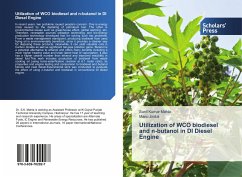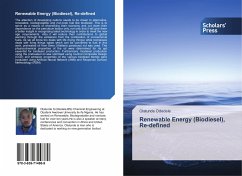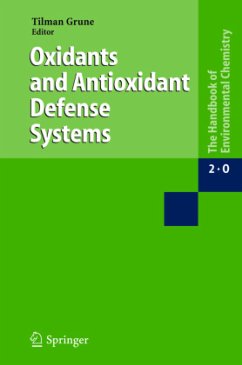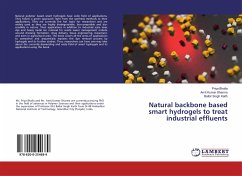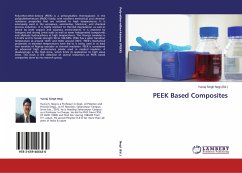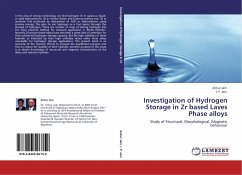
Zingiber officinale: A nature based antioxidant for biodiesel
Versandkostenfrei!
Versandfertig in 6-10 Tagen
33,99 €
inkl. MwSt.

PAYBACK Punkte
17 °P sammeln!
Renewable fuels are one of the technological issues that became more fascinating due to the environmental benefits. In this context, biodiesel deserve highlight because of its biodegradability and low pollutant emission compared to petro diesel. The key problem associated with the use of biodiesel is its low oxidation stability which affects its storage and makes it unsuitable for engine. The oxidation of the biodiesel primarily increases the peroxide value and then a decrease as primary products degrades to form secondary products. The increase in peroxide value can impart the rise in cetane ...
Renewable fuels are one of the technological issues that became more fascinating due to the environmental benefits. In this context, biodiesel deserve highlight because of its biodegradability and low pollutant emission compared to petro diesel. The key problem associated with the use of biodiesel is its low oxidation stability which affects its storage and makes it unsuitable for engine. The oxidation of the biodiesel primarily increases the peroxide value and then a decrease as primary products degrades to form secondary products. The increase in peroxide value can impart the rise in cetane number, which reduces ignition delay and can cause various engine problems. As an option to stop or slowing down the oxidation process, antioxidants are added to inhibit the initiation and propagation of free radicals, reducing the formulation of secondary degradation compounds. In this book we have provided the information about the use ginger extract as an antioxidant for protecting biodiesel.




